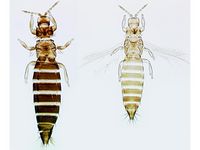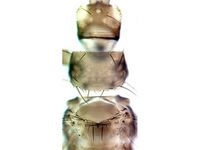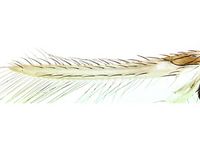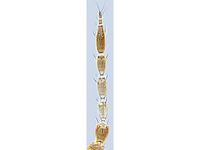Frankliniella fusca
| Literature database |
|---|
| 146 articles sorted by: |
| • year (descending) |
| • research topics |
| • countries/regions |
| • host plants |
| • list of natural enemies |
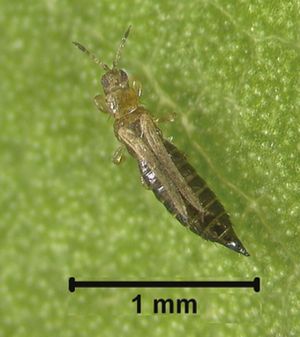
Author(s): A. Gabrielle LaTora et al.
Source: Journal of Integrated Pest Management (2022) 13 (1) art. pmab045
Frankliniella fusca (Hinds 1902) - (tobacco thrips)
This thrips is found in North America and in parts of Central America and the Caribbean. It has been also reported from outside the Americas like from Japan. F. fusca is polyphagous and attacks a variety of crops. For example, it can cause serious economic damage to groundnuts, cotton and tomatoes. Further it is an important vector of the Tomato spotted wilt virus, which it transmits to groundnuts and other crops.
The thrips feed on flower and foliage. On ground nuts, it can be particularly destructive on young plants, where the feeding damage can result in stunting, delayed maturity, yield loss, and even plant death.
Diagnostic features are listed below according to Riley et al. (2011). For larvae see Skarlinsky & Funderburk (2016).
| Diagnostic features: | |
|---|---|
| • | typically brown |
| • | antennae with 8 segments |
| • | pronotal anteromarginal setae shorter than anteroangular setae |
| • | postocular seta IV reduced or absent |
| • | comb on tergite VIII absent |
| • | wing size may be reduced (micropterous) or normal (macropterous) |
Synonyms:
Euthrips fuscus
For a review see LaTora et al. (2022).
- Other images of Frankliniella fusca (PaDIL - click to enlarge)
